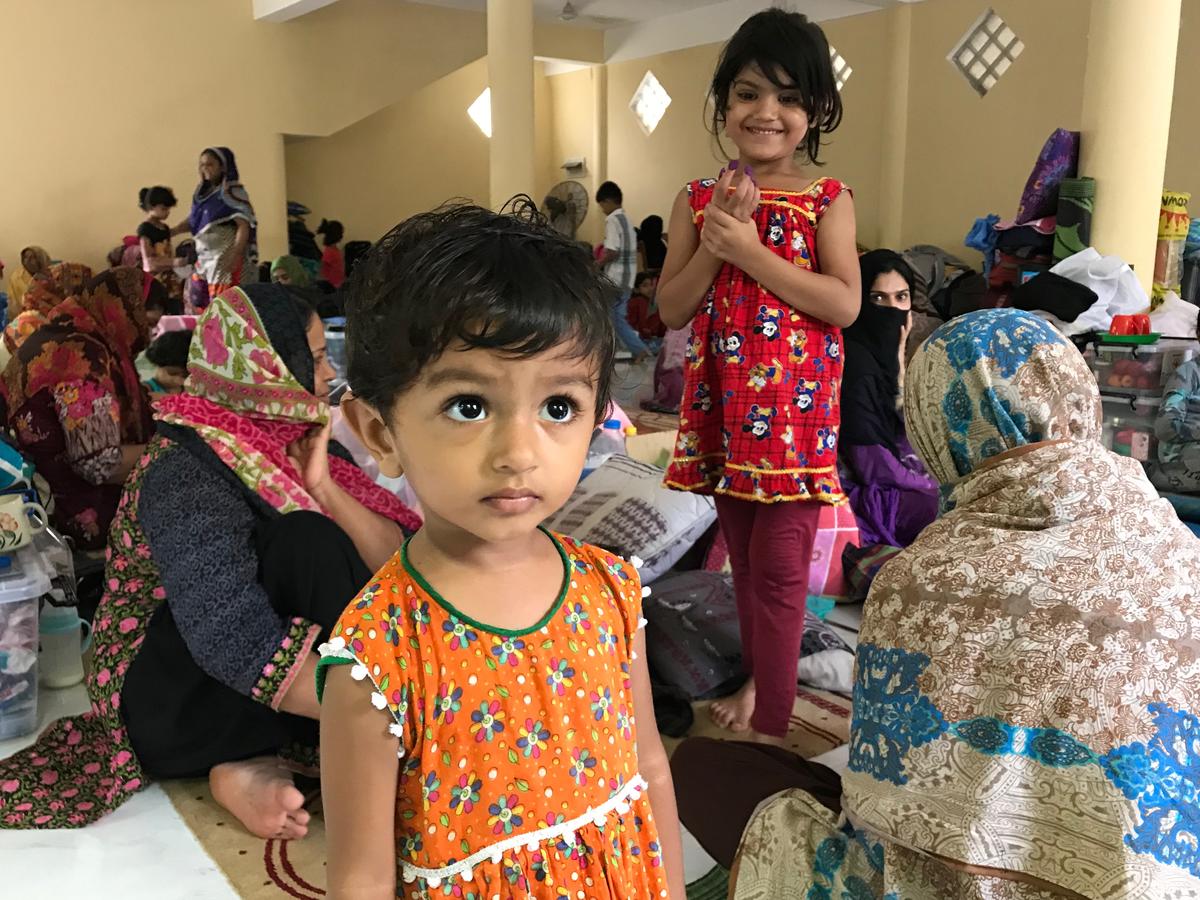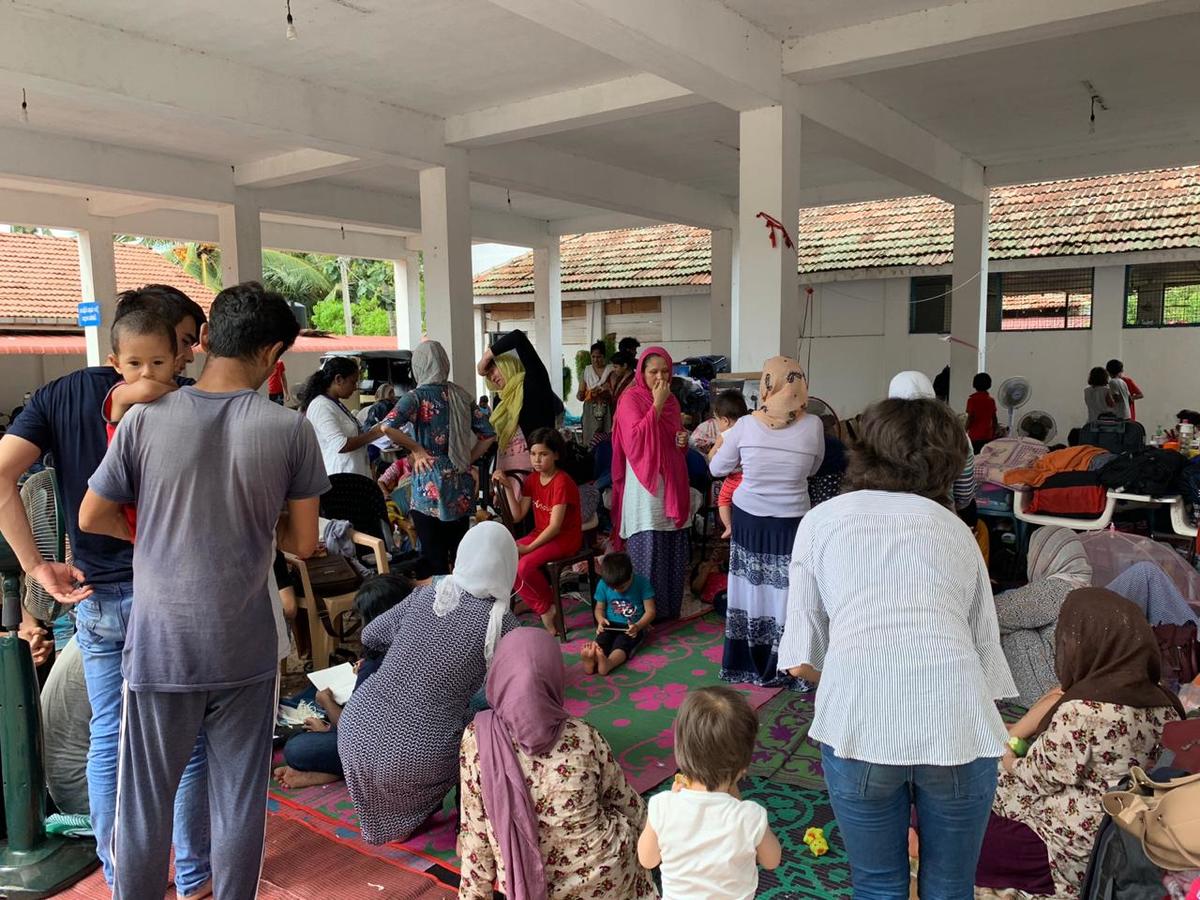Sri Lankan agency builds new shelters in Jaffna despite security problems
Sri Lankan agency builds new shelters in Jaffna despite security problems

JAFFNA, Sri Lanka, July 25 (UNHCR) - Despite the deteriorating security situation in northern and eastern Sri Lanka, a UNHCR-funded organisation in Jaffna is pushing ahead with construction of new shelters for people displaced or made homeless during almost two decades of civil war.
The Jaffna Social Action Centre (JSAC) is building or upgrading more than 450 shelters across the Jaffna peninsula in northern Sri Lanka for families living in makeshift shelters on their own land or still displaced since the 2002 ceasefire between the Liberation Tigers of Tamil Eelam and the central government.
Tensions have been rising again between the separatists and government forces and mounting clashes have been reported in recent months from the north and east, both ethnic Tamil strongholds. But this has not deterred JSAC - whose skilled workers, technicians and support staff are all recruited locally - from continuing a project launched in February.
"We discussed the current situation and decided to overcome it," said Pathmanathan, JSAC's shelter project coordinator. "The people we are helping have been displaced for years. UNHCR has given us a golden opportunity to meet their needs so we just try to deal with the security problems."
Hundreds of thousands of people were uprooted during the 1983-2002 conflict and more than 60,000 people remain displaced on the Jaffna peninsula. The deteriorating security situation threatens to swell their ranks.
JSAC is building 300 brick and wood shelters for displaced families, many of whom have been living in structures made of earth and palm leaves. The new homes will keep them dry and do not need regular, costly maintenance. The remaining 150 shelters - two-room brick structures, which can later be extended - are being built for people who have returned to their land.
"We've achieved a lot in a short period because of the beneficiaries," said Pathmanathan, attributing the programme's success to its owner-driven approach. The non-governmental organisation provides materials and technical assistance, but the home owners make sure the shelters get built on time and to good standards.
"In the past, masons and carpenters would come from different places, but now the security situation is restrictive," Pathmanathan noted. "If you have labourers from within the community, they come to work every day and have a sense of ownership," he added.
UNHCR has worked with the members of JSAC's shelter team since 1996, when they were employed by the former Ministry for Relief, Rehabilitation and Reconciliation. They moved to JSAC two years ago. UNHCR staff are impressed by the tenacity of the team members, who still work out of government offices.
"I often see JSAC field officers whizzing past my window on their motorbikes, even on weekends," remarked Edward Benson, acting head of UNHCR's field office in Jaffna.
"If the government offices are closed for any reason, the JSAC team comes to work out of our offices instead," he said, adding: "UNHCR lends weight where needed - trucking in cement ourselves to overcome restrictions on transporting materials, and providing T-shirts to help JSAC staff feel more secure in the field."
Since 2004, JSAC has constructed or upgraded 2,252 shelters with UNHCR funding, including temporary homes for people displaced by the devastating December 26, 2004 Indian Ocean tsunami. It has also provided or repaired nearly 300 lavatories, 160 wells and 17 community halls.
Finding people permanent homes is a challenge because there is not much land available in the Jaffna peninsula and many of the displaced come from areas regarded as high security zones.
But JSAC is optimistic. "It's not a job, it's a service," Pathmanathan explained. "We are building up people's confidence and preparing them for when development comes. Now they know how to build a house, nobody will be able to cheat them in future."
By Clare Graham in Jaffna, Sri Lanka




